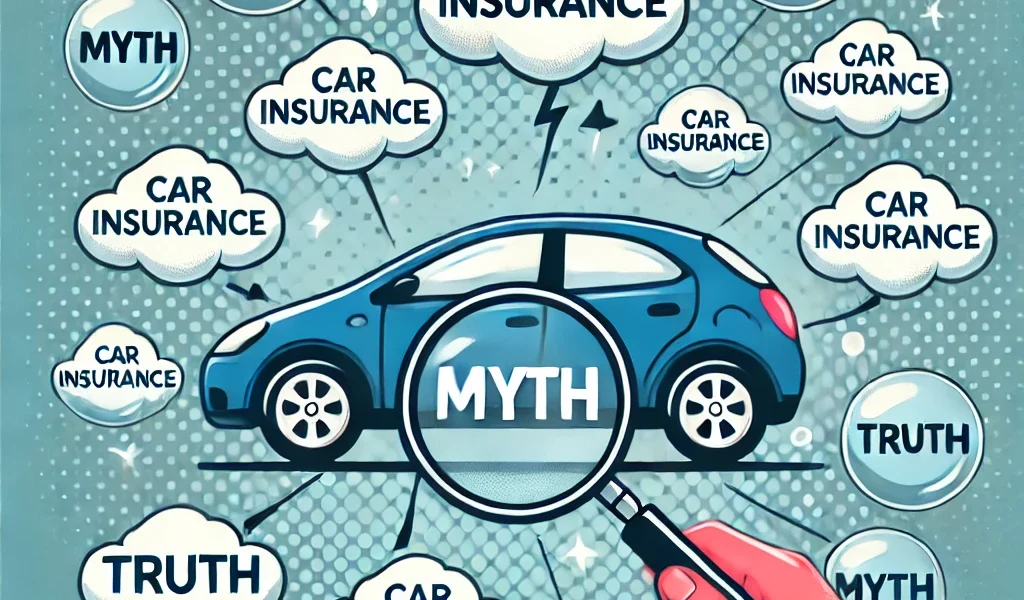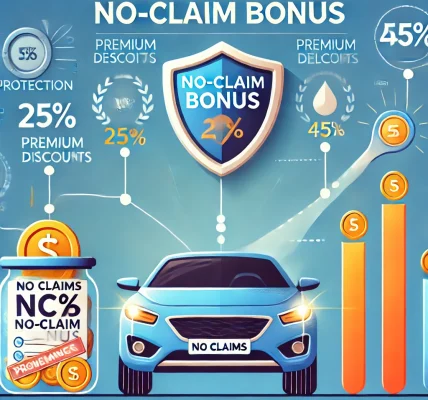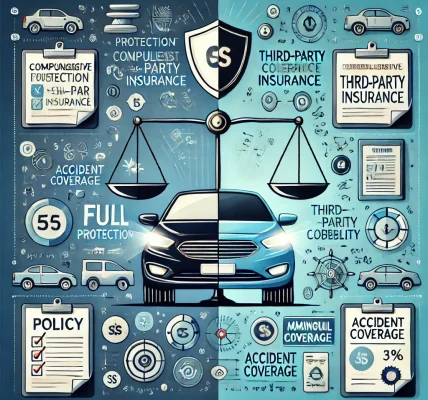Introduction
Car insurance is an essential financial safety net for drivers, but many misconceptions surround it. These myths often lead to confusion, causing individuals to either overpay for coverage or misunderstand what their policies truly offer. In this article, we will debunk the top 10 myths about car insurance, providing clarity and helping you make informed decisions.
Myth 1: The Color of Your Car Affects Your Insurance Premium
The Truth:
Many believe that red cars attract higher insurance premiums because they are associated with fast driving. However, insurance companies do not consider car color when calculating premiums. Instead, they assess factors such as the vehicle’s make, model, age, engine size, and safety features.
Myth 2: Personal Car Insurance Covers Business Use
The Truth:
If you use your personal vehicle for business activities, such as deliveries or ridesharing, your personal car insurance may not cover damages in case of an accident. Business-related driving typically requires a commercial car insurance policy, ensuring adequate coverage for work-related incidents.
Myth 3: Older Drivers Always Pay Higher Premiums
The Truth:
While younger, inexperienced drivers generally pay higher premiums, older drivers with good driving records may receive discounts. Insurance companies consider driving history, accident records, and policy choices rather than age alone.
Myth 4: Minimum Liability Insurance Is Enough Coverage
The Truth:
While minimum liability coverage meets legal requirements, it may not be sufficient in a serious accident. If damages exceed your coverage limit, you’ll have to pay the remaining costs out of pocket. Comprehensive coverage provides better financial protection.
Myth 5: Your Car Insurance Covers Everything in an Accident
The Truth:
Car insurance policies have exclusions. Standard policies may not cover mechanical breakdowns, wear and tear, or personal belongings inside the car. It’s important to review your policy details and consider additional coverage options such as roadside assistance and theft protection.
Myth 6: If a Friend Borrows Your Car, Their Insurance Covers Any Accidents
The Truth:
In most cases, insurance follows the vehicle rather than the driver. If your friend gets into an accident while driving your car, your insurance policy may be responsible for covering the damages, not theirs.
Myth 7: Comprehensive Coverage Includes Everything
The Truth:
Comprehensive coverage does not mean “complete” coverage. It covers non-collision-related damages like theft, vandalism, and natural disasters. To ensure full protection, you may need collision coverage and other add-ons.
Myth 8: Parking Tickets Affect Your Insurance Premium
The Truth:
Traffic violations like speeding or reckless driving impact your insurance rates, but parking tickets do not. However, unpaid parking fines may lead to vehicle registration issues, which could indirectly affect your insurance.
Myth 9: Your Insurance Will Pay Off Your Loan if Your Car Is Totaled
The Truth:
If your car is totaled and you owe more on your loan than the car’s actual cash value, standard insurance won’t cover the remaining loan balance. Gap insurance is needed to cover the difference between the car’s value and the remaining loan amount.
Myth 10: Your Insurance Rates Automatically Decrease Over Time
The Truth:
While a good driving record and age may contribute to lower rates, they don’t automatically decrease. Factors like claims history, policy changes, and new risk assessments influence premiums. Regularly comparing policies and maintaining a clean driving record can help secure lower rates.
Conclusion
Misinformation about car insurance can lead to costly mistakes. By understanding the facts, you can make better choices, ensuring you get the right coverage at the best price. Always review your policy details, ask questions, and compare different insurers to find the most suitable plan for your needs.
If you have any doubts about your car insurance, consult with a professional or your insurance provider to ensure you have the right protection.




